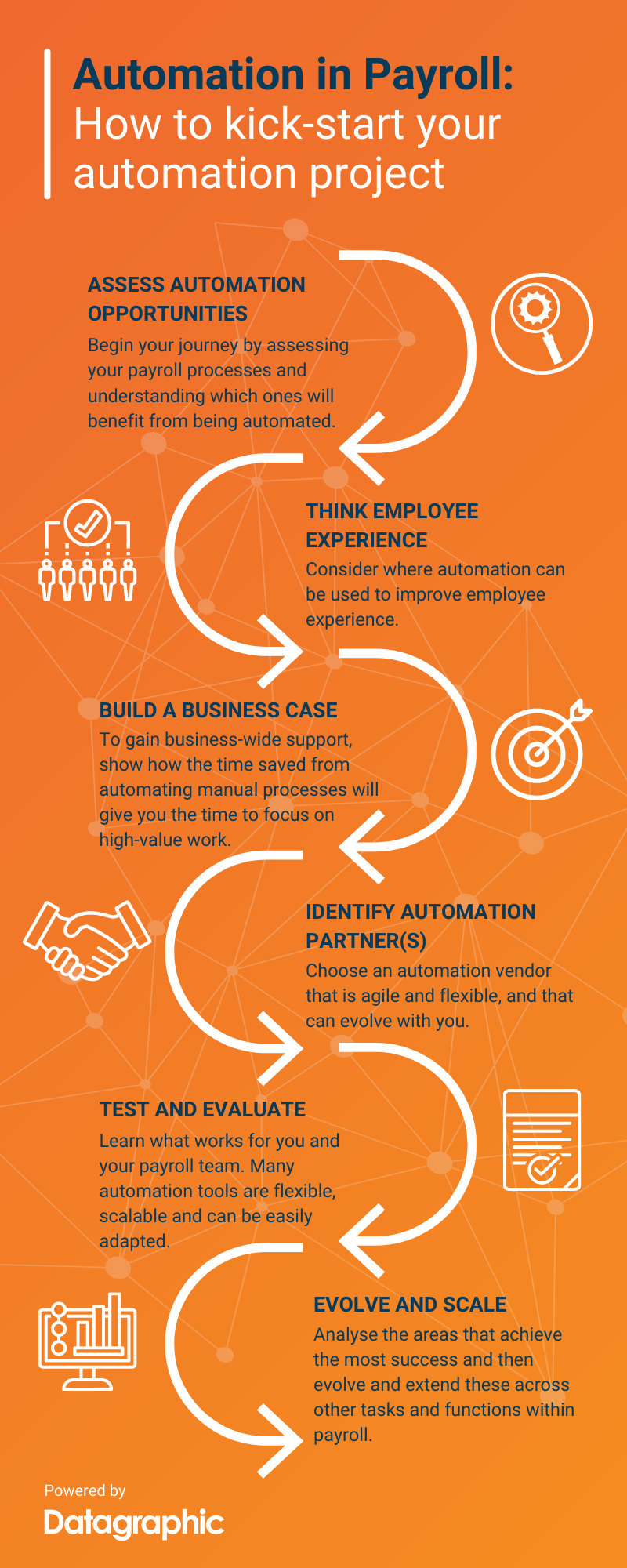If you’ve read our article – How Robotic Process Automation (RPA) is Transforming Payroll – you’ll have a good understanding of what RPA is and how you can benefit from implementing automation technology. So now you might be thinking, “where do I start?!”
You’re more likely to achieve automation success by piloting smaller projects first, learning from them and then building on them with the view to implement on a wider-scale. In the infographic below, we highlight the steps to take to kick-start your payroll automation project.

Begin your journey by assessing your payroll processes and understanding which ones will benefit from being automated. For example, you could look to automate the processing and delivery of payslips. This task can take your team hours if not days every month to handle. But with automation tools, this could be reduced to just a few minutes.
It’s likely you’ll need buy-in from other departments across the business including, the C-suite. To gain their support you need to show how the time saved from automating manual processes will give you the ability to focus on work that provides more strategic value. For example, analysing and reporting payroll data.
Remember, you don’t have to travel this RPA journey alone. Identify and choose an automation vendor that is agile and flexible, and that can evolve with you.
Then finally, test what works for you and your organisation. RPA is flexible, scalable and can be easily adapted to suit your needs. Analyse the areas that achieve the most success and then evolve and extend these across other tasks and functions within payroll.
RPA in Payroll white paper
If – like other payroll teams – you’re looking for advice on how Robotic Process Automation (RPA) tools can improve payroll tasks, download our free white paper – Robotic Process Automation in Payroll: A guide to successful automation projects
In the white paper, we share ideas on how you can use RPA tools for payroll tasks and how you can benefit from embracing automation technology. Plus, you’ll get best practice advice from automation experts.
Download the white paper here >>
Or if you’d like to speak to one of our automation experts, please get in touch.
